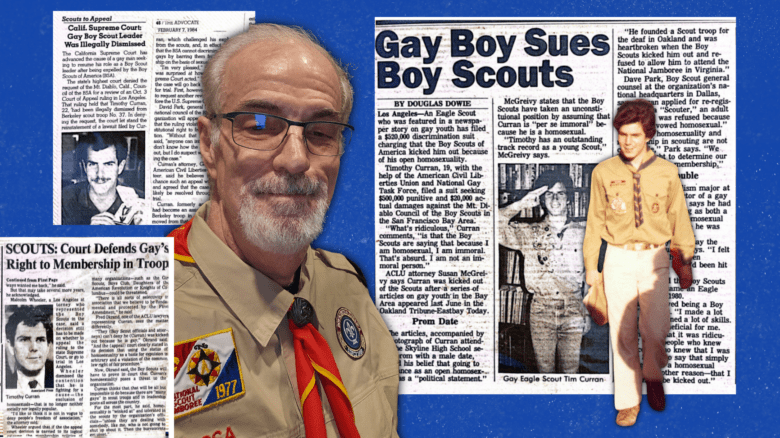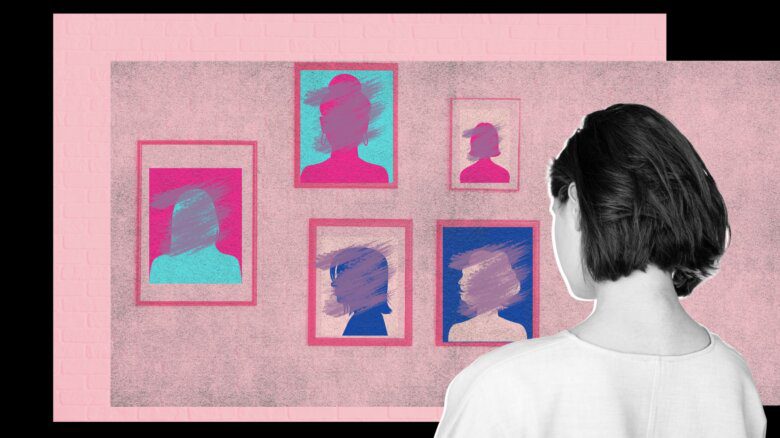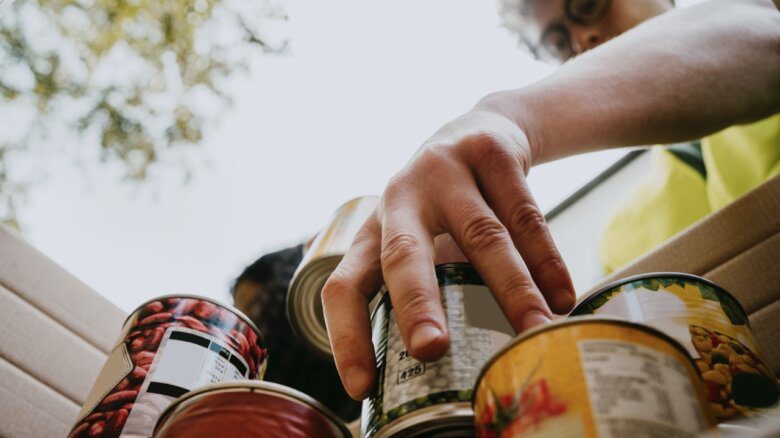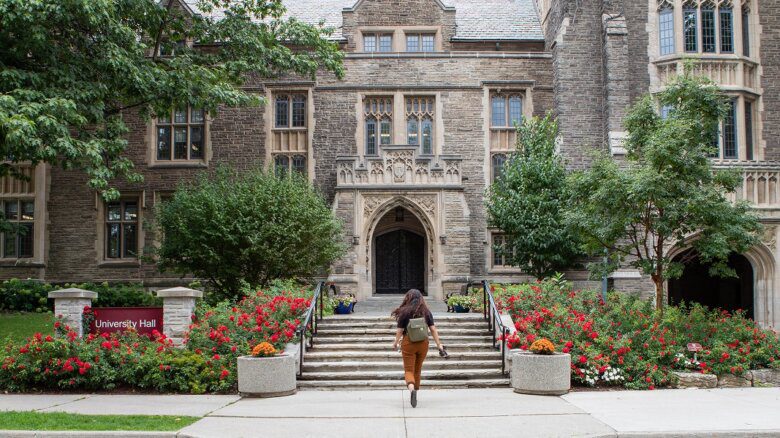Charles Mwangi is an undocumented bisexual Kenyan refugee under threat of deportation in Toronto. Home for Mwangi is Kenya, a country in Africa that has a rising movement against LGBTQ+ people going back to the 1930s and British colonization. Penal Code 1930 criminalized same-sex relationships as “carnal knowledge against the order of nature” and enshrined anti-LGBTQ+ sentiment into law. The penalty attached to having “carnal knowledge of any person against the order of nature or permitting a male person to have carnal knowledge of him or her against the order of nature” carries an automatic 14-year prison sentence in Kenya.
Carnal knowledge against the order of nature is defined more clearly by the Immigration and Refugee Board of Canada as sexual intercourse between men, but is widely considered to be inclusive of women too. While Kenya’s Supreme Court has surprisingly upheld limited protections against more restrictive and oppressive legislation proposed by lawmakers—like outlawing the right to representation and association through registered organizations—there are still serious threats to the lives and well-being of queer people in Kenya carried out by gangs, lynch mobs and even family members.
The cases of Edwin Chiloba and Sheila Adhiambo Lumumba speak volumes of the dangers that still exist for out LGBTQ+ people in Kenya. Chiloba, an openly gay aspiring fashion designer and activist was found suffocated to death and left in a metal box in 2023, while Lumumba, a 25-year-old non-binary lesbian, was found in their bedroom raped and murdered with multiple stab wounds and evidence of blunt force trauma. This is all documented in both Kenyan and Western media, and as evidenced by the Immigration and Refugee Board’s own research, is common knowledge understood by Canada’s immigration authorities. So now that you know what Mwangi is fleeing, you should understand that Canada has already tried to deport him once this past August, despite the known dangers.
An out bisexual man, Mwangi recounts his harrowing experience in Kenya and the unmoored feeling of being a refugee with nowhere to call home. “I am from the Kikuyu tribe,” Mwangi says from his home in Toronto. “In our tribe, we have long-distance relatives and we have nuclear relatives who are near you. My brother and my dad had a lot of bitterness and were able to influence other family members to be very harsh on me.” Not entirely unfamiliar to those in Western LGBTQ+ communities, the rejection from Mwangi’s closest relations would eventually force him to leave home. This banishment would take him to Afghanistan in 2010, where he got work with a construction company contracted to the U.S. Marines.
It was in Afghanistan where Mwangi lost hope of returning to his family home or community after receiving word from a relative of the growing danger that awaited him there. “I don’t know what I can tell,” Mwangi says, a noticeable quiver in his voice. “A gang member from what is called Mungiki was looking for me. They are the most notorious gang in Kenya, and there is nothing you can say to them about being a gay or a bisexual man.”
The Mungiki, originally formed as a Kikuyi youth resistance movement in the 1990s, had the original purpose of defending the Kikuyu minority from having their land taken by the Indigenous and political majority. Long story short, like most movements of poor youth created for the greater good but led astray (for example, the Los Angeles CRIPS, originally inspired by the Black Panthers), today the Mungiki are little more than a mafia, with all the typical hallmarks of murder, extortion and bribery that come with that. Mwangi’s contract with the Marines ended in 2014. After hearing he was a target of the Mungiki, he had to return to Kenya. “I went back home but could not go back to my family house. I went into hiding far from my family, working some fuel construction jobs here and there,” Mwangi says before adding, “I survived a very hard time then.”
After two years of working sporadically and living “on the down-low,” in 2016, Mwangi received a lifeline in the form of a second contract gig with the U.S. military in Afghanistan. During this round of work, a friend and co-worker offered Mwangi an opportunity that would significantly alter his life trajectory. “She told me that she knew someone who could secure a visa to come to Canada,” Mwangi explains. By 2019, Mwangi was living out of a hotel room in downtown Toronto and doing odd temp jobs in construction and factories while waiting for the hearing that would determine the eligibility of his refugee claim. In 2020, the COVID-19 pandemic created another opportunity for Mwangi in the form of overburdened long-term care homes lacking staff willing to risk infection by the still-misunderstood virus. Though “opportunity” is maybe an inaccurate description of what was offered by temp agencies willing to take advantage of migrants willing to risk life for labour. “I worked as a personal support worker (PSW), as a housekeeper, all that stuff, because during that time there was no staff,” Mwangi says. “It was very hard for those care homes to get someone ready to work with the people who had COVID. So we were really overworking 12 hours a day, seven days [a week].”
Author Jo Deluzio’s book Just Gone: True Stories of Persecution for Love and Life is a collection of accounts of LGBTQ+ refugees who fled persecution to seek relative safety in Canada. Deluzio, inspired to write the book after attending a human rights conference at the annual WorldPride festival in 2014, points to accounts from unnamed refugees in the book who were also fleeing draconian anti-LGBTQ+ laws, including rejection from family members, and in many instances, violence from the state and family members. “Most of the [people] that I interviewed were being raped and tortured, with police jailing them and forcing anal exams, as if you could tell from someone’s bum if they’re gay,” Deluzio says. “In some cases, their own families were poisoning them.”
As one of those “front-line heroes” celebrated by Canadian political leaders, his front-line service as a housekeeper and PSW during a global pandemic would have no impact on his first hearing with the Canada Border Services Agency (CBSA) on July 16, 2024.
According to a timeline provided by the Migrant Workers Alliance for Change, Mwangi received a negative Pre-Removal Risk Assessment (PRRA) after his in-person appointment based on what they perceived to be a lack of credibility about Mwangi’s sexuality. The CBSA advised Mwangi to purchase a plane ticket to Kenya with a flyout deadline of Aug.t 24, and to appear with the airline ticket as evidence on July 31, 2024. This expense was initially to be paid out of pocket by Mwangi, but after explaining that he couldn’t afford to purchase the tickets within that timeline, the CBSA said, during a second in-person meeting in the first week of August, that they would purchase a one-way ticket back to Kenya on his behalf. The ticket was dated for Aug. 25. A major factor in Mwangi’s inability to afford his own plane ticket was the financial impact of covering his legal fees incurred during the refugee process—the cost of making his original claim, appealing the decision and representation for his judicial review—a cost Mwangi claims came at between $4,000 to $5,000 per process, and for which he only became eligible to apply for legal aid certificates for in August.
According to Diana Da Silva, his advocate and an organizer with the Migrant Workers Alliance for Change, everything from the standard of proof required to legitimize a claimant’s sexuality, bureaucracy and tired biases like race, worked against Mwangi, and continue to impact LGBTQ+ claimants like him in the Canadian immigration system. “I mean, they didn’t give any specifics to us, but it’s not something that we haven’t seen before with this refugee process,” Da Silva explains. “People who are part of the LGBTQ+ community have to prove that, and they have this view or bias of who fits into this picture of an LGBTQ+ person.” Mwangi didn’t fit the parameters as far as Canada was concerned because, as Da Silva points out, the standard of proof used to make these determinations is part of the problem. “In a lot of cases, like Charles’s, you can’t openly be who you are back home,” Da Silva says. “If Canada is expecting refugee claimants to be out publicly at home as proof, they’re not going to have the exact proof that they’re looking for since they’re people just trying to survive in the places that they’re living in.” Deluzio, who had become aware of Mwangi’s story through news reports, was also confused about the decision. “From the standard of the Refugee Convention status and also from being in need of protection, he meets both. It’s not just that he is at risk of persecution; he will be persecuted and no doubt murdered,” she says. “So part of me wonders if there’s an element of racism going on. I mean, we don’t think of Canada as racist, but it’s there bubbling under the surface, like magma.”
As evidence of this, an African refugee crisis unfolded on the streets of Toronto in 2023, and until the involvement of Black churches, community health organizations and other social justice networks, which temporarily sheltered and loudly advocated on their behalf, all levels of government seemed willing to leave them there. The irony of this was that many were from Kenya and many of them were driven out by anti-LGBTQ+ persecution.
Viewed alongside the treatment of white Ukrainians fleeing war and the welcome given to them, it’s difficult to argue that race has no bearing on these decisions. For Mwangi, who is engaged to another Kenyan refugee he met while in a waiting area at the 519—a community centre in Toronto’s gay Village serving the LGBTQ2S+ community—and arrived at his hearing with photos of them together and an open letter from his fiancé, racism may have been a factor in his inability to sway the CBSA decision. He illustrates this by comparing the demographic of refugees to the judges making decisions about their status. “There is a lot of racism, but it’s very hidden,” Mwangi asserts. “When you go for your hearing, all the white people are the judges. They can dismiss you, but they don’t tell you a reason at the hearing.”
Da Silva adds, “When we went to the Canada Border Services Agency, who were the people waiting in that room at the reporting centre? They were brown and Black people.” She goes on to point out that the highest incidences of refusal are against claimants from the Global South. As if to make the point, on Sept. 28, Amnesty International amplified the story of Arwa Almsrawi, a trans woman from Syria originally offered asylum by Canada before reneging on the offer while Almsrawi was in transit. Almsrawi has been sitting in limbo, detained at an airport in Istanbul for the last eight months.
On Aug. 8, the Migrant Workers Alliance shared a video on Instagram with Mwangi explaining his predicament and requesting that followers advocate on his behalf by sending emails to the organization. On Aug. 20, just five days before his deportation date, community organization Jane Finch Action Against Poverty (JFAAP) released an open letter to Humber River—Black Creek federal MP Judy Sgro to advocate on Mwangi’s behalf. The open letter also suggested that people should “make calls to Immigration Minister Miller & Public Safety Minister Dominic LeBlanc to demand a stop to his deportation and grant his permanent residency.” Within 24 hours, they presented a petition of 3,000 people to Sgro, and by Aug. 22, Mwangi’s story was being shared by local media. Ironically, Aug. 22 was also the date that Mwangi’s request for a deferral by his lawyer was denied by the CBSA. “Based upon a review of all of the material presented, and after careful consideration, I have insufficient objective evidence to warrant a deferral of Mr. Mwangi’s removal from Canada,” was the legal reasoning behind the CBSA’s final decision. On Aug. 23, Mwangi released a second Instagram video thanking people for their support and updating them about his failed attempt at deferral.
For now, Mwangi’s story has a happy ending, if not a permanent one. On Aug. 24, just one day before his deportation date, pressure provided by petitions, grassroots advocacy and a United Nations emergency application resulted in a “stay of execution” for Mwangi—a one-year temporary resident permit—which means he could still face deportation in 2025. This comes after a 2023 poll from Abacus Data found that 67 percent of Canadians believe that Canada’s immigration targets are too high, a record number of mainly foreign workers and students are being turned away. Under the circumstances, it’s fair to wonder if some of that sentiment isn’t also influencing the outcomes for asylum seekers in the system. For LGBTQ+ asylum seekers, for whom imprisonment, torture and death are most likely if they are turned away, a wave of anti-immigration sentiment isn’t just about access to a better standard of life, but, actually, just the right to live.
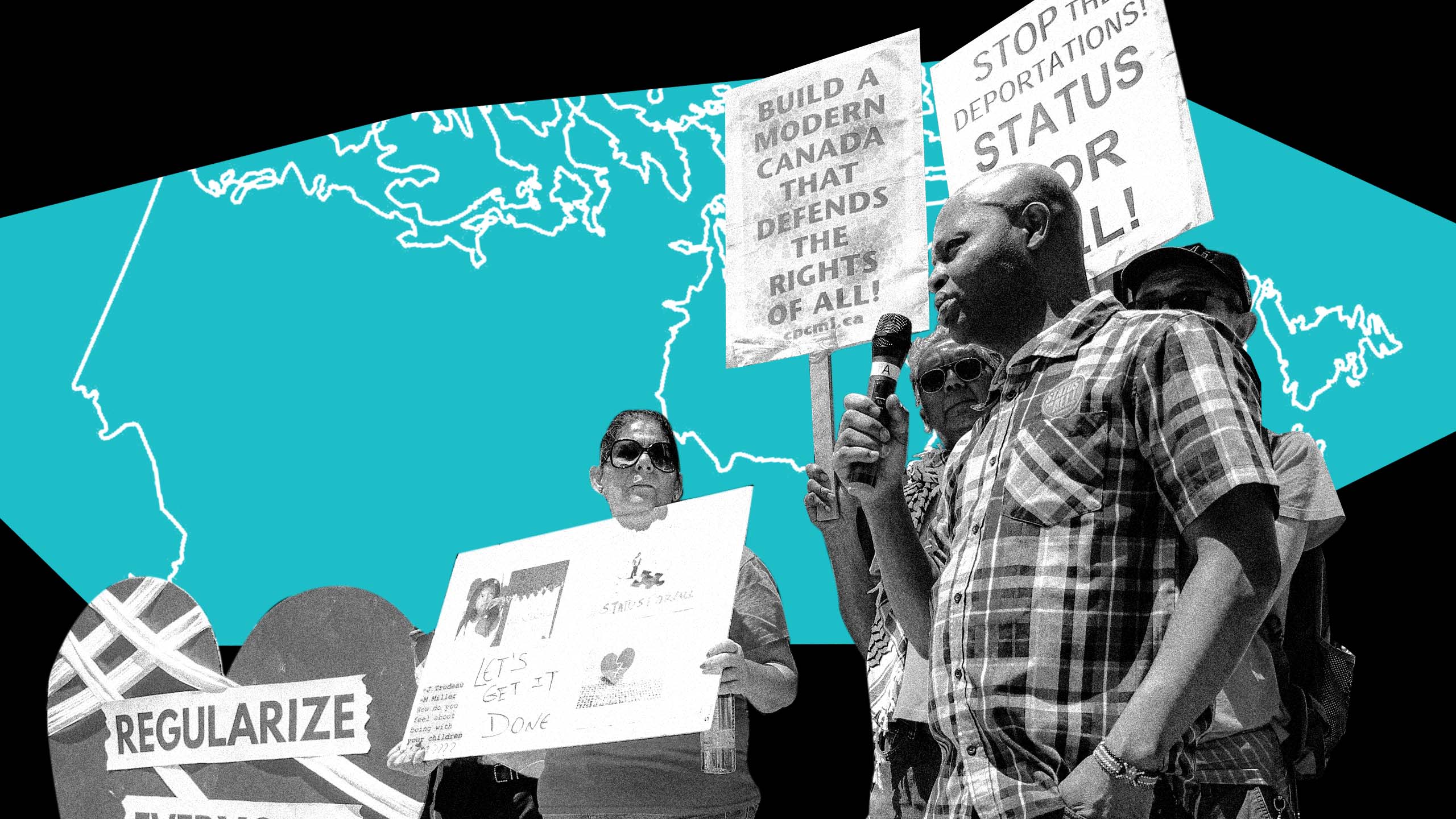
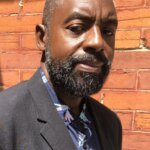
 Why you can trust Xtra
Why you can trust Xtra